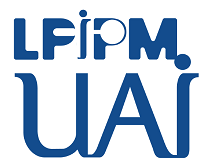Karakter Ideal Mahasiswa Bukan Mitos: Ketiadaan Transmisi Budaya Universitas-Dosen-Mahasiswa, dan Ekspektasi Perilaku Kooperatif dalam Formasi Kelompok
Abstract
Penelitian ini melaporkan temuan-temuan mengenai (i) pembelajaran sosial atas norma dan aturan institutional tentang karakter ideal mahasiswa, serta (ii) formasi kelompok dan perilaku normatif dalam bekerja sama antar individu dalam kelompok. Penelitian ini menerapkan serangkaian aktivitas pengumpulan data yaitu wawancara sumber dan penelusuran dokumen institusional, penyebaran kuesioner kepada populasi dosen, kuesioner dengan sampel purposif kepada mahasiswa di lingkungan Fakultas Ilmu Pengetahuan Budaya Universitas Al-azhar Indonesia (FIB UAI), serta peninjauan terhadap kasus kelompok kerja di sejumlah mata kuliah Program Studi Bahasa dan Kebudayaan Inggris Universitas Al-azhar Indonesia. Penelitian menemukan dosen dan mahasiswa memiliki kesamaan ide tentang karakter ideal mahasiswa yang cenderung merujuk kepada tata nilai dan kemampuan kerja secara umum. Namun, pembentukan wawasan ini tidak melalui pembelajaran sosial yang mentransmisikan wawasan tersebut sebagai informasi budaya. Lebih lanjut, penelitian ini menemukan formasi kelompok mengkonsekuensikan pembentukan ekspektasi perilaku kooperatif. Pelanggaran terhadap ekspektasi tersebut mendatangkan hukuman sosial dan institusional. Penelitian ini mempercontohkan upaya inisial dalam mencermati transmisi dan evolusi budaya di universitas.
Kata Kunci – Formasi Kelompok, Kooperativitas, Norma, Transmisi dan Evolusi Budaya, Universitas.
Full Text:
PDFReferences
Frith CD, Frith U. Social Cognition in Humans. Current Biology. 2007;17(16):724–32.
Zlatev J, Racine TP, Sinha C, Itkonen E. The Shared Mind: Perspetives on intersubjectivity. Zlatev J, Racine TP, Sinha C, Itkonen E, editors. Amsterdam/Philadelphia: John Benjamins Publishing Company; 2008.
Foolen A, Ludtke UM, Racine TP, Zlatev J. Moving Ourselves, Moving Others: Motion and emotion in intersubjectivity, consciousness, and language. Foolen A, Ludtke UM, Racine TP, Zlatev J, editors. John Benjamins Publsihing Company. Amsterdam/Philadelphia; 2012.
Tomasello M. The Cultural Origins of Human Cognition. Harvard University Press; 1999.
Cavalli-Sforza LL, Feldman MW. Cultural Transmission and Evolution: a Quantitative Approach. 1981.
Boyd R, Richerson PJ. Culture and the Evolutionary Process. 2005.
Cavalli-Sforza LL. Cultural Evolution 1. Vol. 26, Amer. Zool. 1986.
Mesoudi A. Cultural Evolution: How Darwinian Theory Can Explain Human Culture and Synthesise the Social Sciences. Chicago and London: University of Chicago Press; 2011.
Mesoudi A, Thornton A. What is cumulative cultural evolution? Proceedings of the Royal Society B: Biological Sciences. 2018;285(1880).
Richerson PJ, Christiansen MH. Introduction. In: Cultural Evolution. The MIT Press; 2019.
Hull DL. Science as a process: an evolutionary account of the social and conceptual development of science. Chicago and London: The University of Chicago Press; 1988.
Harrari YN. Sapiens: a Brief History of Humankind. McClelland & Steward; 2014.
Currie TE, Turchin P, Bednar J, Richerson PJ, Schwesinger G, Steinmo S, et al. Evolution of Institutions and Organizations. Complexity and Evolution. 2016.
Currie TE, Campenni M, Flitton A, Njagi T, Ontiri E, Perret C, et al. The cultural evolution and ecology of institutions. Philosophical Transactions of the Royal Society B: Biological Sciences. 2021; 376(1828).
Tomasello M. Why We Cooperate. London: The MIT Press; 2009.
Matthew S, Boyd R, Veelen M V. Human Cooperation among Kin and Close Associates May Require Enforcement of Norms by Third Parties. In: Richerson PJ, Christiansen MH, editors. Cultural Evolution: Society, Technology, Language, and Religion. Cambridge: MIT Press; 2013. p. 45–60.
Haun DBM, Over H. Like Me: Homophily-Based Account of Human Culture. In: Cultural Evolution. Cambridge: The MIT Press; 2013. p. 75–86.
Abrams D, Wetherell M, Cochrane S, Hogg MA, Turner JC. Knowing what to think by knowing who you are: Self‐categorization and the nature of norm formation, conformity and group polarization. British Journal of Social Psychology. 1990; 29(2):97–119.
Smaldino PE. The cultural evolution of emergent group-level traits. Behavioral and Brain Sciences. 2014; 37(3):243–54.
Smith D, Dyble M, Major K, Page AE, Chaudhary N, Salali GD, et al. A friend in need is a friend indeed: Need-based sharing, rather than cooperative assortment, predicts experimental resource transfers among Agta hunter-gatherers. Evolution and Human Behavior [Internet]. 2019; 40(1):82–9. Available from: https://doi.org/10.1016/j.evolhumbehav.2018.08.004.
Chaudhary N, Salali GD, Thompson J, Rey A, Gerbault P, Stevenson EGJ, et al. Competition for Cooperation: Variability, benefits and heritability of relational wealth in hunter-gatherers. Sci Rep. 2016; 6(July):1–7.
Salali GD, Chaudhary N, Thompson J, Grace OM, van der Burgt XM, Dyble M, et al. Knowledge-Sharing Networks in Hunter-Gatherers and the Evolution of Cumulative Culture. Current Biology [Internet]. 2016; 26(18):2516–21. Available from: http://dx.doi.org/10.1016/j.cub.2016.07.015.
Migliano AB, Page AE, Gómez-Gardeñes J, Salali GD, Viguier S, Dyble M, et al. Characterization of hunter-gatherer networks and implications for cumulative culture. Nat Hum Behav [Internet]. 2017;1(2):1–6. Available from: http://dx.doi.org/10.1038/s41562-016-0043.
Turchin P. The Puzzle of Human Ultrasociality. In: Cultural Evolution. The MIT Press; 2019.
DOI: http://dx.doi.org/10.36722/psn.v3i1.2546
Refbacks
- There are currently no refbacks.
























